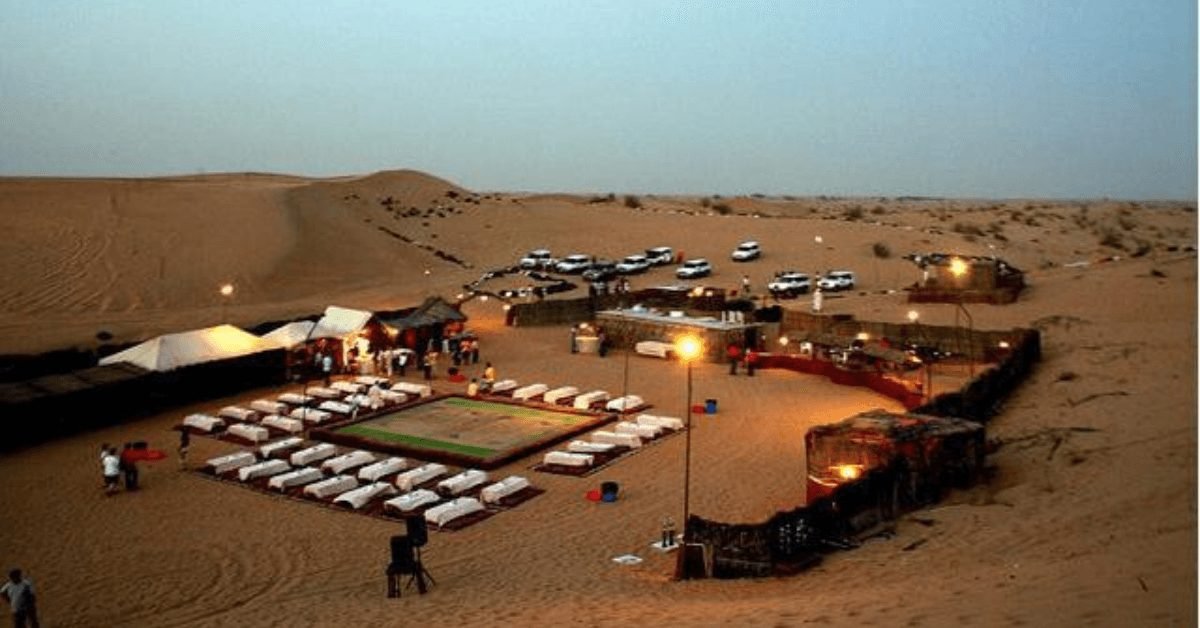Dubai has become one of the most popular tourist destinations in the world, attracting millions of visitors each year. One of the key attractions in Dubai is the thrilling experience of a desert safari. However, with adventure comes the need for safety. Dubai takes the safety of tourists during desert safaris very seriously and has implemented various measures to ensure their well-being throughout the experience.
Desert Safari in Dubai: An Overview

Dubai offers a range of desert safari experiences, allowing tourists to immerse themselves in the enchanting beauty of the desert. From exhilarating dune bashing to camel rides and sandboarding, these safaris provide a unique and memorable adventure. With the growing popularity of desert tourism, Dubai has taken significant steps to prioritize the safety of its visitors.
Understanding the Risks
Before delving into the safety measures, it’s essential to understand the potential risks associated with desert safaris. The desert environment can pose challenges such as extreme weather conditions, navigation difficulties, and the risk of getting lost. Sandstorms can also occur, reducing visibility and creating hazardous conditions. It is crucial to address these risks to ensure a safe and enjoyable experience for tourists.
Dubai’s Approach to Tourist Safety
Regulatory Framework and Licensing
Dubai has established a robust regulatory framework to oversee tourism activities, including desert safaris. The government sets strict standards and guidelines that operators must adhere to. Licensing requirements ensure that only qualified and responsible operators are allowed to conduct desert safaris. This helps maintain a high level of safety for tourists.
Training and Certification
To ensure the competence of desert safari guides, Dubai mandates specific training and certifications. Guides are trained in various aspects, including first aid, navigation, and dealing with emergencies. Continuous training and skills development programs are also in place to keep guides updated with the latest safety protocols and techniques.
Vehicle Safety Measures
Dubai enforces stringent safety standards for safari vehicles. Operators must regularly maintain and inspect their vehicles to ensure they are in optimal condition. Safety features such as roll bars, seat belts, and fire extinguishers are mandatory. These measures minimize the risk of accidents and provide a safer experience for tourists.
Emergency Preparedness
Dubai recognizes the importance of being prepared for emergencies. Desert safari operators are required to develop comprehensive emergency response plans. This includes having effective communication systems in place to coordinate with authorities in case of any untoward incidents. Collaboration with local emergency services ensures a rapid and efficient response to emergencies.
Insurance and Liability
Dubai has established insurance requirements for desert safari operators. This ensures that tourists are protected in case of accidents or injuries during the safari. Operators are also liable for the well-being of their guests and must have mechanisms in place to address any mishaps and provide appropriate compensation when necessary.
Safety Briefings and Precautions
Prior to embarking on a desert safari, tourists are provided with detailed safety briefings. These briefings cover important guidelines and precautions to follow during the safari. Tourists are advised on topics such as staying within designated areas, wearing appropriate attire, and the proper use of safety equipment. Emphasizing personal responsibility ensures that tourists actively participate in ensuring their own safety.
Monitoring and Oversight
Government authorities in Dubai play a crucial role in monitoring desert safari operations. Regular inspections and audits are conducted to ensure compliance with safety standards and regulations. Any complaints or concerns from tourists are thoroughly investigated, and appropriate actions are taken to rectify any issues. This ongoing monitoring ensures that the safety of tourists remains a top priority.
Collaboration with Tour Operators
Dubai Tourism maintains a strong partnership with tour operators. Regular meetings and feedback sessions are conducted to discuss safety practices and address any concerns. This collaboration fosters a culture of responsible tourism and encourages operators to prioritize the safety and well-being of their guests.
Best Practices for Tourists
While Dubai takes extensive measures to ensure the safety of tourists during desert safaris, tourists themselves can also contribute to their well-being by following some best practices:
Choosing a Reputable Operator
Before booking a desert safari, it is important to research and select a reputable operator. Reading reviews and testimonials from previous tourists can provide insights into the quality and safety record of the operator. Verifying licenses and certifications adds an extra layer of assurance.
Packing Essentials
To enhance safety and comfort during the desert safari, tourists should pack essential items. These include appropriate clothing and footwear suitable for the desert environment, sun protection (such as hats and sunscreen), sufficient water, and snacks.
Following Safety Guidelines
Tourists must actively listen to and follow instructions from the safari guide. Staying within designated areas and trails is crucial to avoid getting lost or encountering hazardous situations. Understanding the risks and adhering to safety guidelines significantly reduces the likelihood of accidents or injuries.
Health and Hygiene Considerations
In the desert climate, staying hydrated is of utmost importance. Tourists should ensure they drink an adequate amount of water throughout the safari. Managing food hygiene and practicing safe eating habits is also essential. Additionally, protecting oneself from the sun’s harmful rays and being mindful of heat-related illnesses is crucial for a safe and enjoyable experience.
Conclusion
Dubai’s commitment to ensuring the safety of tourists during desert safaris is evident through its comprehensive approach. From strict regulations and licensing requirements to continuous training, emergency preparedness, and robust monitoring, every aspect is carefully addressed. By following best practices and adhering to safety guidelines, tourists can contribute to their own safety and make the most of their desert safari experience in Dubai.
FAQs
Are desert safaris safe for children?
Desert safaris can be safe for children when proper precautions are taken. It is important to choose a reputable operator that offers child-friendly activities and ensures their safety throughout the safari.
What should I do in case of a sandstorm during the safari?
In case of a sandstorm, it is crucial to follow the instructions of the safari guide. Seek shelter in the vehicle or designated safe areas until the sandstorm passes. Operators are trained to handle such situations and will prioritize the safety of the tourists.
How can I ensure the safety of my personal belongings during the safari?
It is advisable to keep personal belongings secure and within your sight during the safari. Avoid carrying valuable items that could be easily lost or damaged in the desert environment.
Are there any age restrictions for participating in desert safaris?
Age restrictions may vary depending on the type of desert safari and the operator. Some activities, such as dune bashing, may have age or height restrictions due to safety considerations. It is best to check with the operator before making a booking.
What happens if a tourist gets injured during a desert safari?
If a tourist sustains an injury during a desert safari, the safari operator will have protocols in place to provide immediate medical assistance. Operators are required to have first aid kits and access to emergency services when needed.

